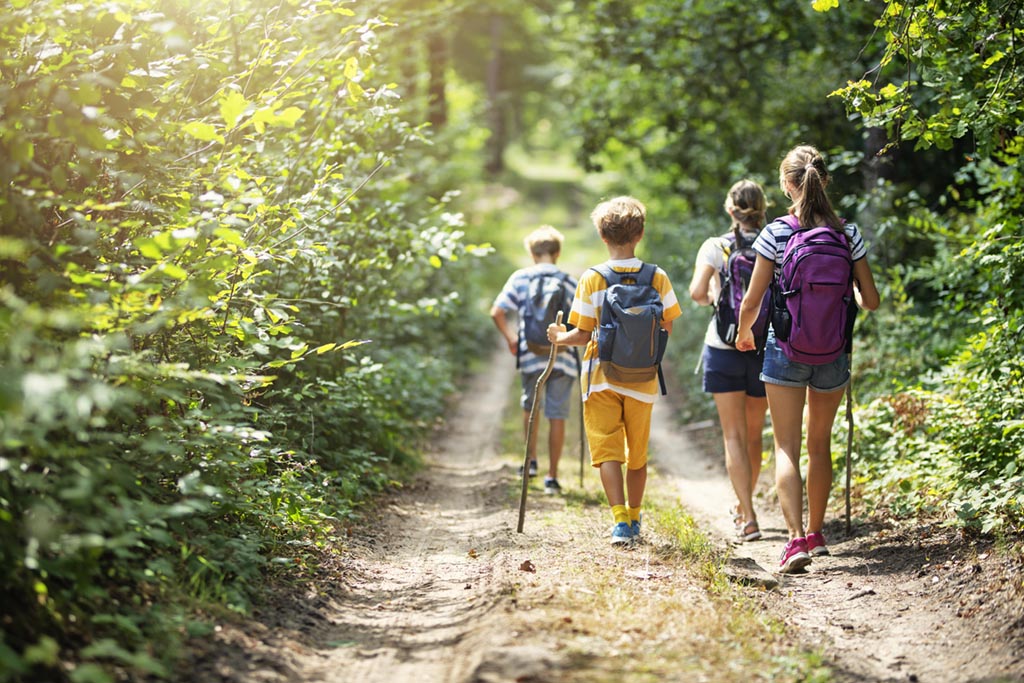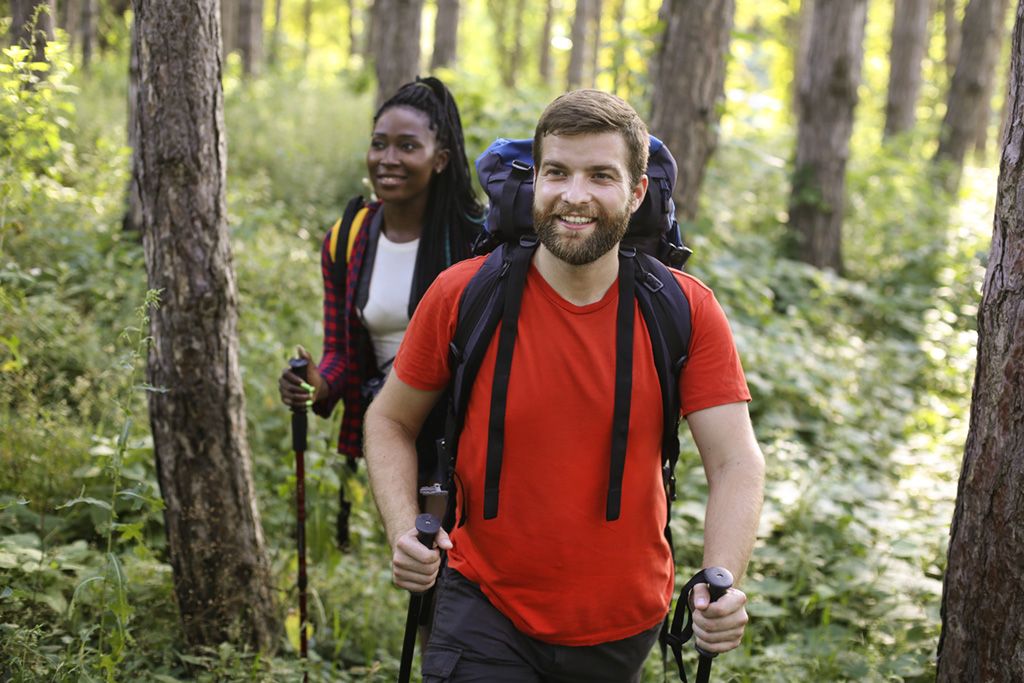
Getting Back to Nature
Theodore Roosevelt is widely considered to be America’s foremost conservationist president, having established the National Park Service among his many other achievements. In his book Outdoor Pastimes of an American Hunter, he summed up his love of nature well, saying “It is an incalculable added pleasure to any one's sum of happiness if he or she grows to know, even slightly and imperfectly, how to read and enjoy the wonder-book of nature.”
Our twenty-sixth president may have been more astute than he even realized.
What Roosevelt may have felt in his gut is now being explored by science, which is unearthing the many benefits of being out in nature, also known as ecopsychology. And it’s being lived out by millions. In recent years, people have rekindled their love of the outdoors, a lesson that has been hammered home during the COVID-19 pandemic—as evidenced by the record number of people visiting national parks.
So read on to discover how being in the great outdoors can be of great boon to both body and mind.
Physical Health Benefits

-
Weight management
The clearest benefit to being outside, regardless of your age, is that it provides the opportunity to move more. Whether you’re simply walking around your neighborhood, making use of a local bike trail, or hiking in a national park, you’re steadily burning calories and aiding metabolic processes. -
Healing
People often talk about the healing power of nature, but it’s usually in the capacity of feeling better mentally. Our immune system gets a boost, simply because we feel safer and more at peace. But can nature actually help you heal? A noted 1984 study in Science magazine seems to indicate that it can, concluding that surgery patients who had window views of natural settings had better outcomes than those who didn’t. -
Cleansing
Even though science isn’t 100 percent sure why, study after study indicates that just breathing in nature helps clear impurities from your body. This is particularly important if you live in a city and are regularly exposed to excess pollutants. Blood pressure
Thanks to the tranquil sights, sounds, and even aromas nature provides, our cortisol and adrenaline levels tend to go down while outdoors, which helps to keep our blood pressure in check.
Mental and Social Health Benefits

-
Reduced stress, anxiety, and depression
As mentioned above, nature is naturally calming, primarily because of its effect on our hormones and immune system. And one of the most commonly demonstrated positive results of this is that it makes us calmer and happier overall. -
Focus
For people with attention disorders like ADHD, being in nature can slow things down, allowing them to focus better. In addition, research shows that students who have more access to nature do better on tests and miss fewer classes. -
More interaction
One lesson we all learned from 2020 is that having limited interaction with others, especially in person, can be, well, painful. Being out in nature gives you many more opportunities for socialization, whether you’re walking with a friend, meeting a new neighbor, or waving to other runners in the park. Research also indicates that young children’s social skills are enhanced when given access to nature. Better self-perception
It’s thought that just being outdoors in nature for several minutes can help improve your self-esteem. One study even indicated that having ten or more trees in a city block had the same effect as getting a $10,000 raise or being seven years younger!-
Small Steps
 As noted earlier, research shows that you don’t even need to be outdoors to experience the benefits of nature. Listening to nature sounds or frequently looking out of your window at the sky can be beneficial.
As noted earlier, research shows that you don’t even need to be outdoors to experience the benefits of nature. Listening to nature sounds or frequently looking out of your window at the sky can be beneficial.
 Regardless of where you live, just opening your door and stepping outside for several minutes can recharge you as well.
Regardless of where you live, just opening your door and stepping outside for several minutes can recharge you as well.
-
Medium Steps
 Going outdoors for a least fifteen to twenty minutes each day can substantially improve your health, as you’ll take in vitamin D naturally. Plus, if you briskly walk around your neighborhood for thirty minutes a day, you’ll meet the World Health Organization’s recommended physical activity levels.
Going outdoors for a least fifteen to twenty minutes each day can substantially improve your health, as you’ll take in vitamin D naturally. Plus, if you briskly walk around your neighborhood for thirty minutes a day, you’ll meet the World Health Organization’s recommended physical activity levels.
 Take advantage of local trails or parks that are within walking distance or a short drive from your home.
Take advantage of local trails or parks that are within walking distance or a short drive from your home.
-
Big Steps
 Take a road trip several times a year to visit an outdoor locale, such as a lake, a beach, or a national park. Even if it’s just a day trip, you’ll benefit by getting out on the road (leave the car windows open!) and intentionally focusing on simply becoming one with nature.
Take a road trip several times a year to visit an outdoor locale, such as a lake, a beach, or a national park. Even if it’s just a day trip, you’ll benefit by getting out on the road (leave the car windows open!) and intentionally focusing on simply becoming one with nature.
Tips for Getting Outside

Being in nature clearly has a myriad of benefits, but not everybody has a park down the road, especially in urban settings. However, there are some steps you can take to ensure that you and your loved ones get ample quality outdoor time. Your health will thank you!
Over a century ago, our twenty-sixth president emphasized some fundamental truths about ourselves, namely that we’re not created to be inside all the time and that we need to appreciate nature. In the twenty-first century, Americans are quickly catching up to these realities—and are reaping the health rewards as a result.
Inspire friends and family to get outdoors by sharing this article.
Up Next:
Eat Well: the Secrets of the Mediterranean Diet

Posted on Feb 23, 2021